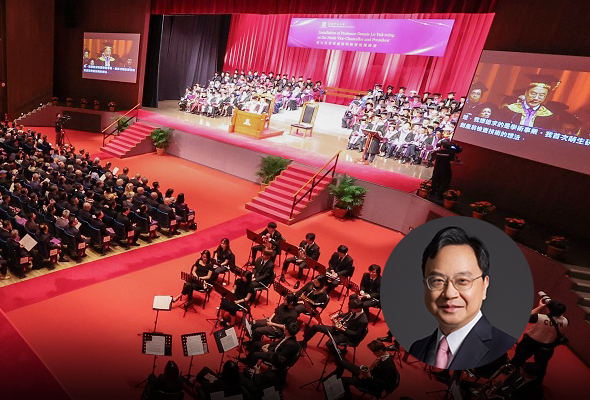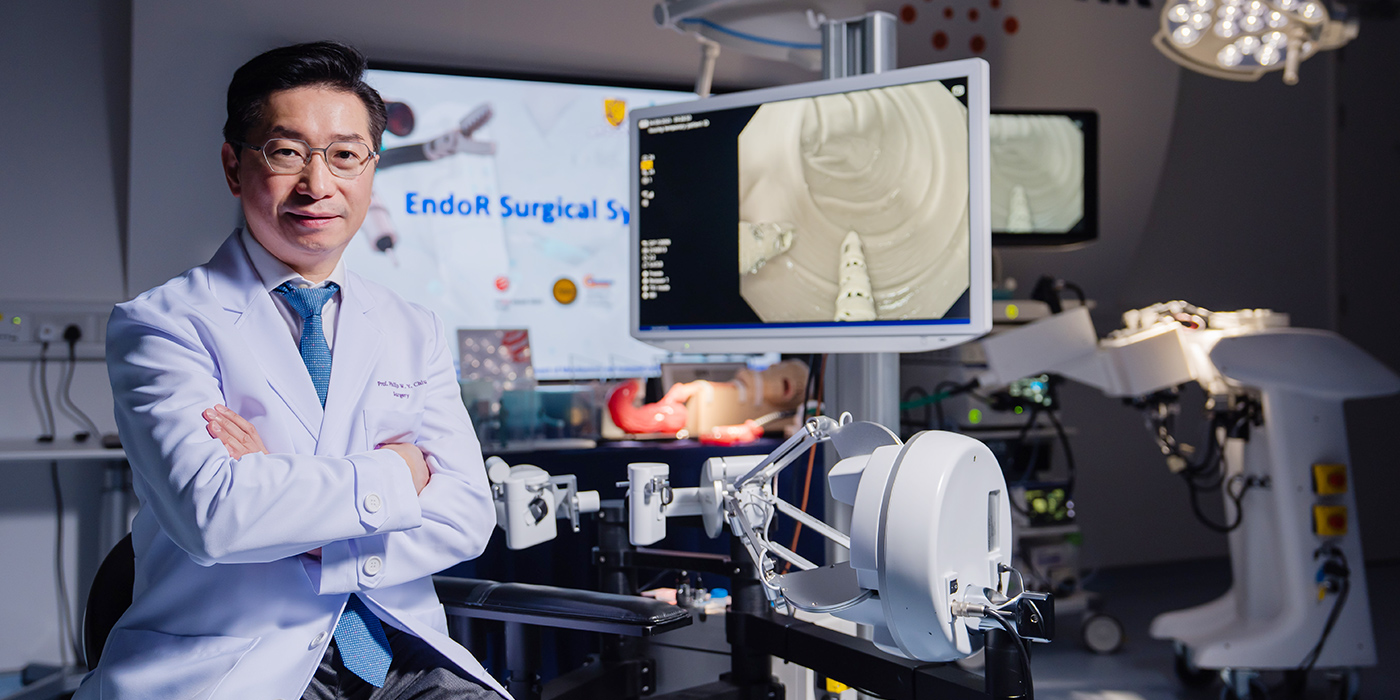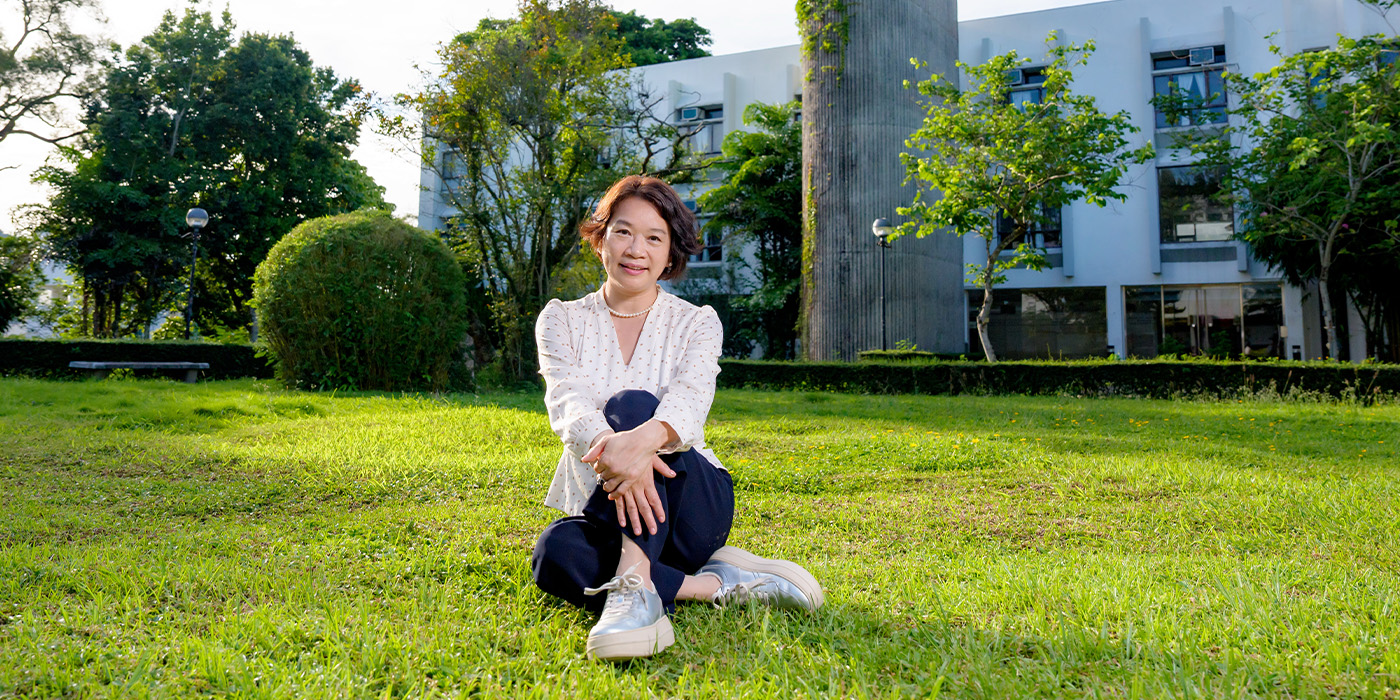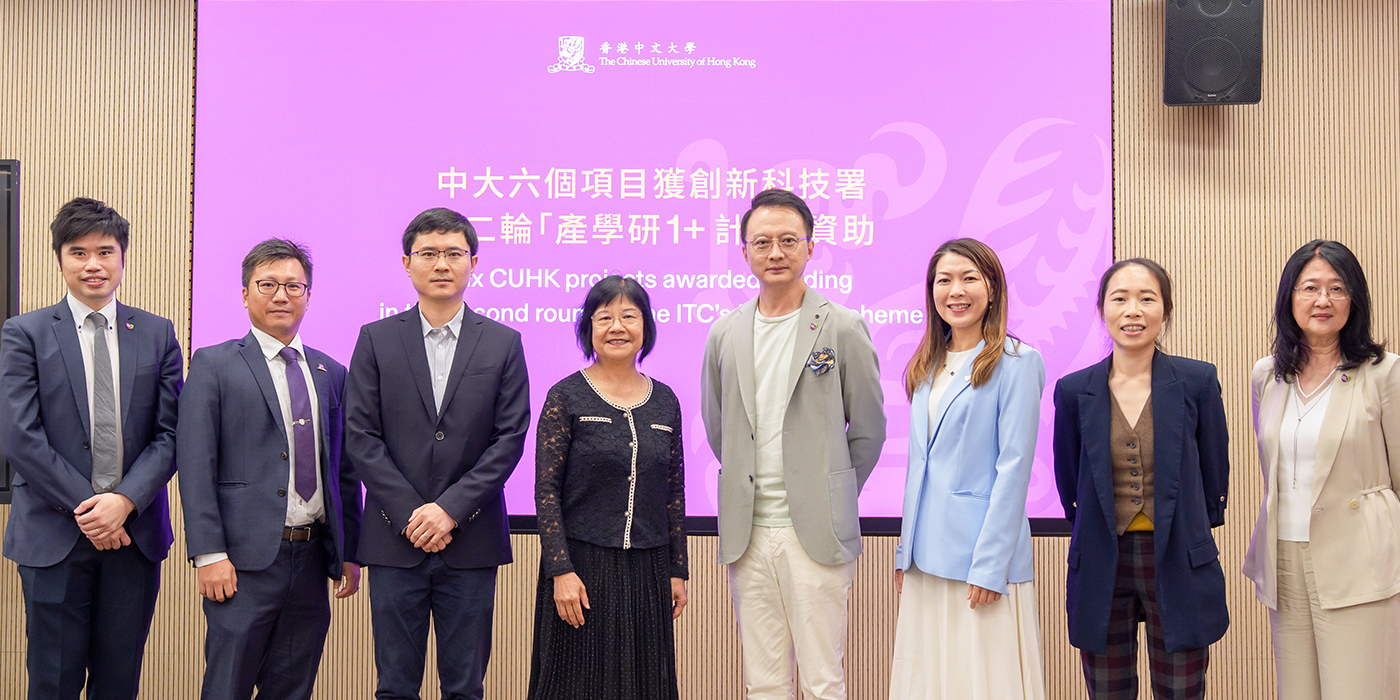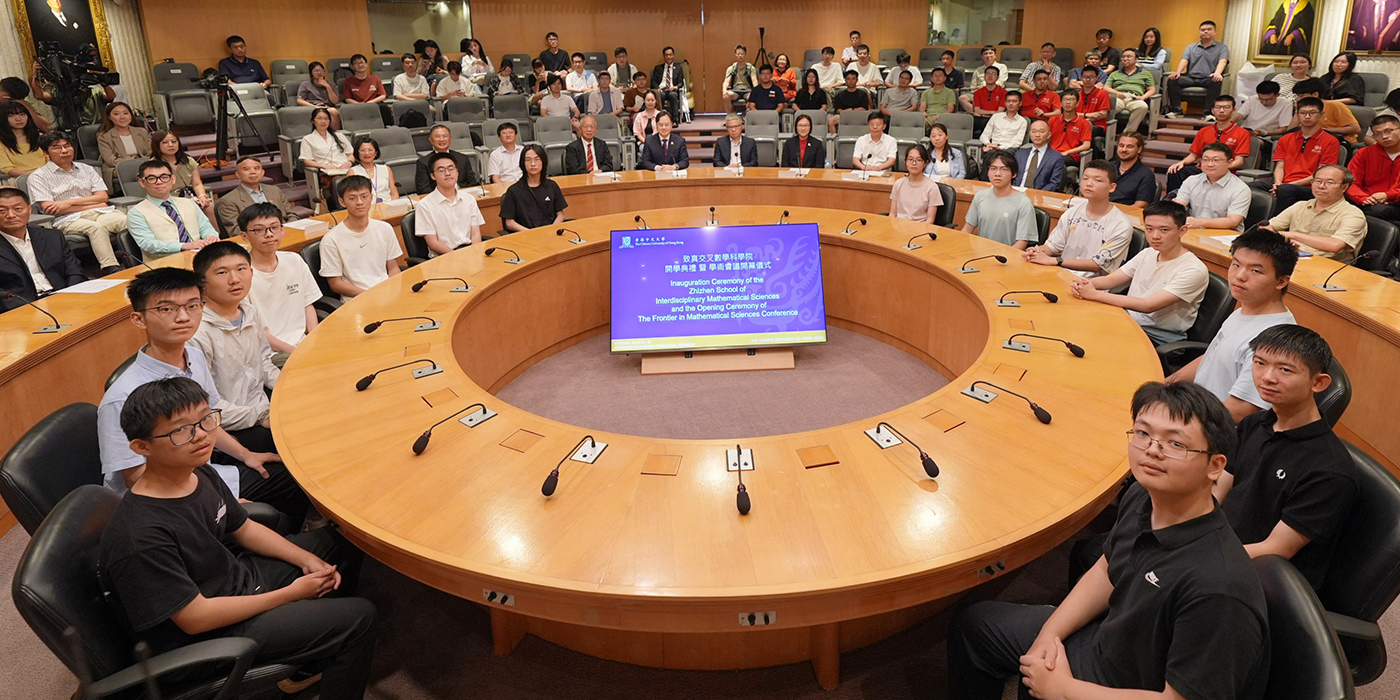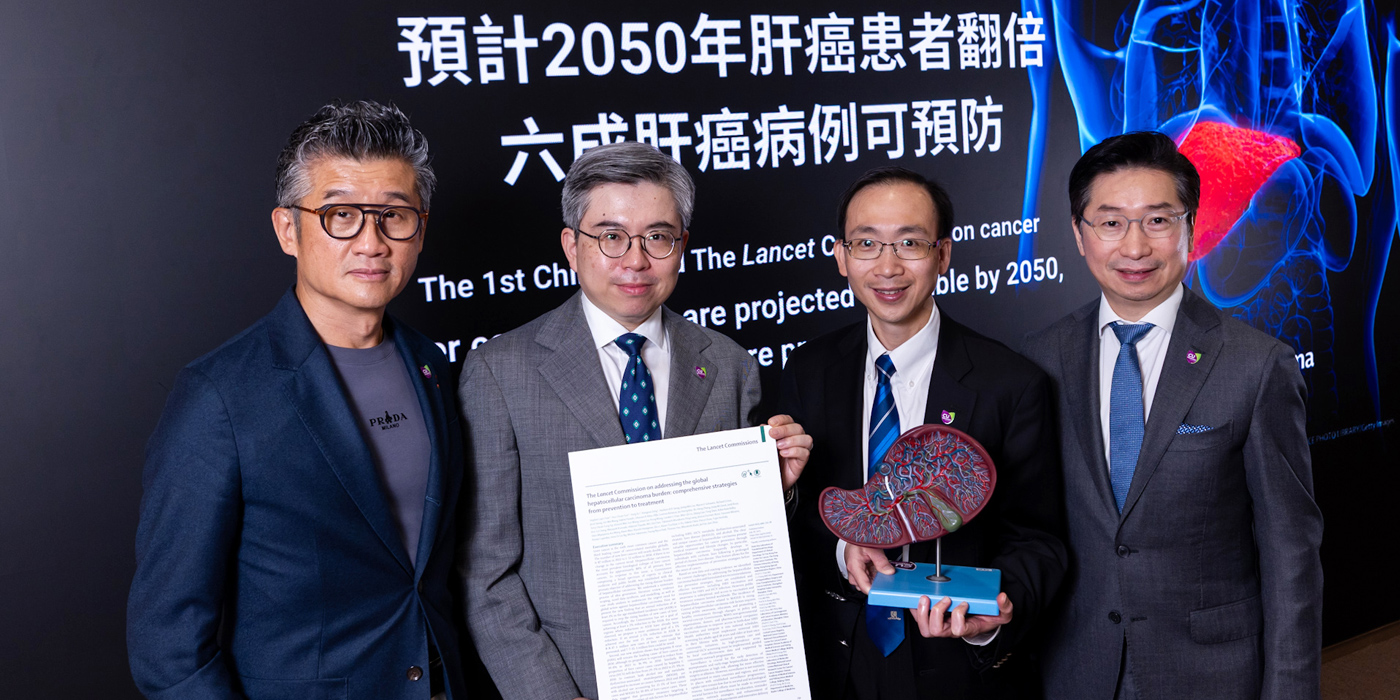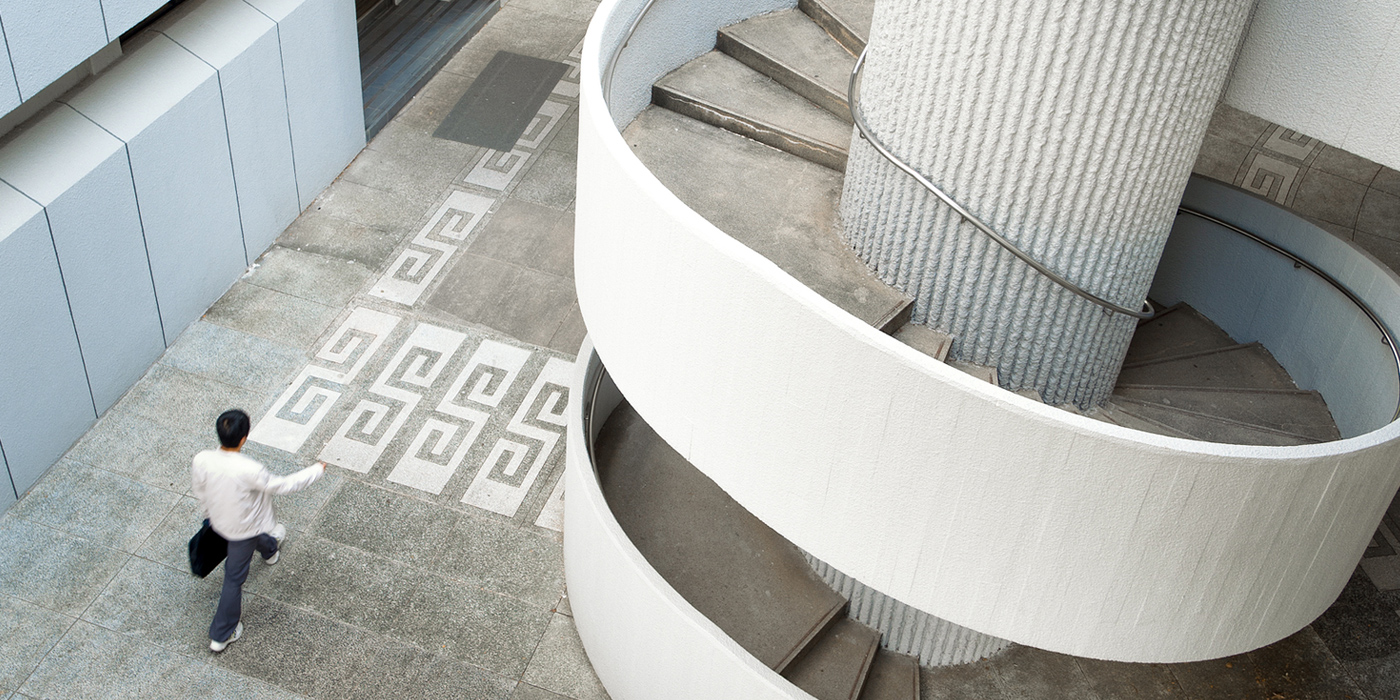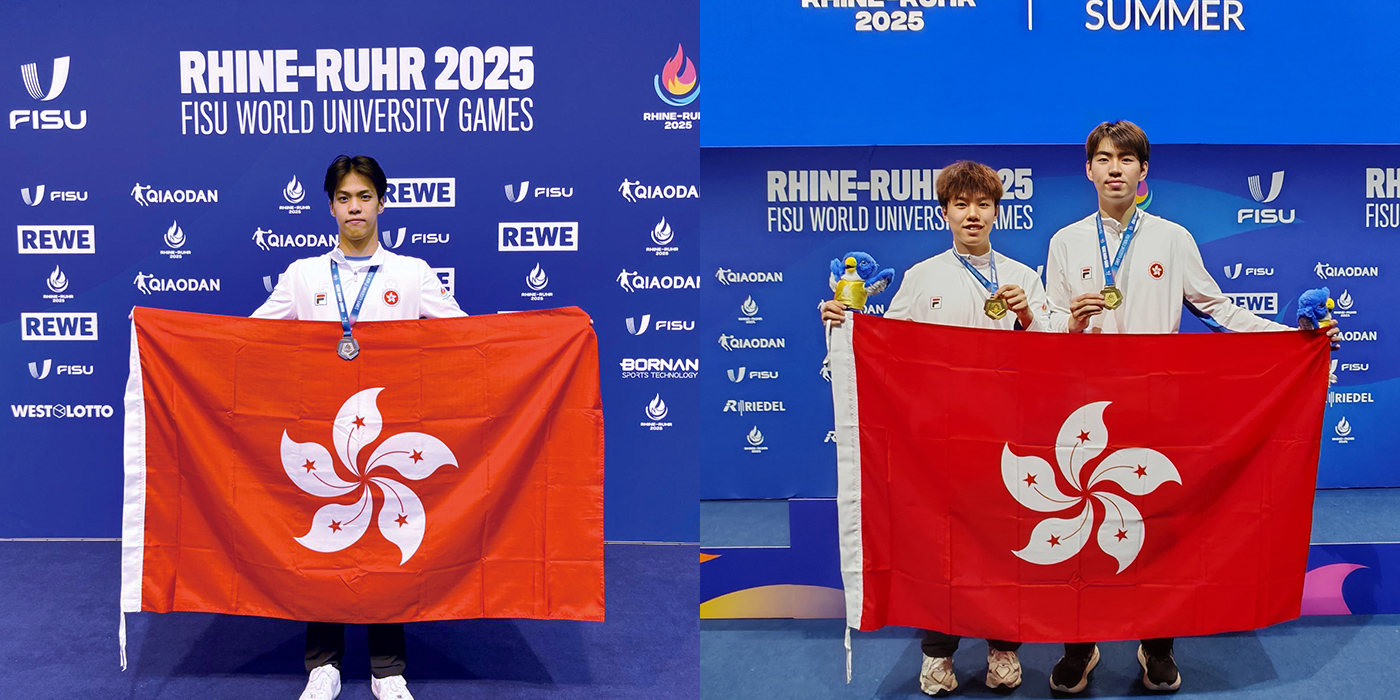Where healthcare goes high-tech
Scholars from CUHK have achieved triple wins at the local edition of Healthy Longevity Catalyst Awards, a funding competition hosted by the Research Grants Council and National Academy of Medicine in the US. The winning projects, tackling neurodegenerative diseases, obesity and tendon disorders respectively, will receive a cash prize of US$50,000 (HK$389,000) each, covering one year.
Age-related neurodegenerative diseases like Alzheimer’s are targeted by Billy Ng’s project. The assistant professor in School of Pharmacy will create bilobalide derivatives from ginkgo tree extracts, and evaluate them as therapeutics against neurodegenerative disorders.
A natural product of ginkgo, bilobalide is thought to protect the nerves. Evaluation before clinical use, however, is thwarted by its chemical instability. The problem is circumvented by direct modification of the chemical, which yields compounds that are active while being chemically stable. The specimens will enable pharmacological researches into treating neurological disorders.
Ren Hongliang of Department of Electronic Engineering, on the other hand, develops swallowable belly balloons to treat obesity. While medication and surgery can help one lose weight, mostly by making one feel full earlier through reducing stomach volume, a remote-controlled, encapsulated intragastric balloon will be an attractive non-surgical option.
Easy to overlook, the tendon is what catches the attention of Patrick Yung and Pauline Lui of Department of Orthopaedics and Traumatology. Through spatial transcriptomics, a molecular profiling method that maps out all gene activities in a tissue sample, they seek to unearth key players, processes, biomarkers and cell-to-cell interactions that lead to degenerative tendon conditions, which have remained unclear due to the inability of single-cell RNA sequencing to analyse the samples.






